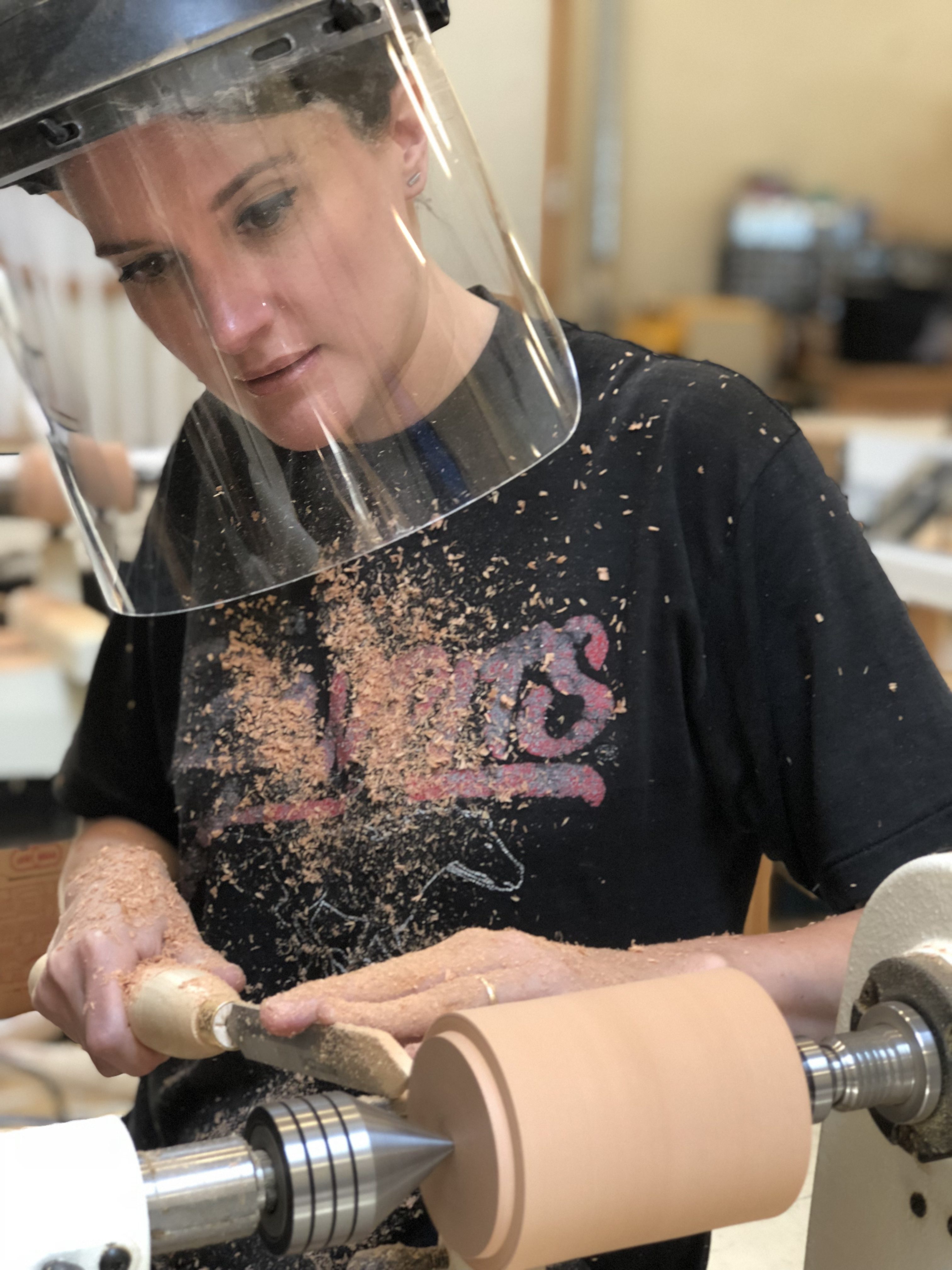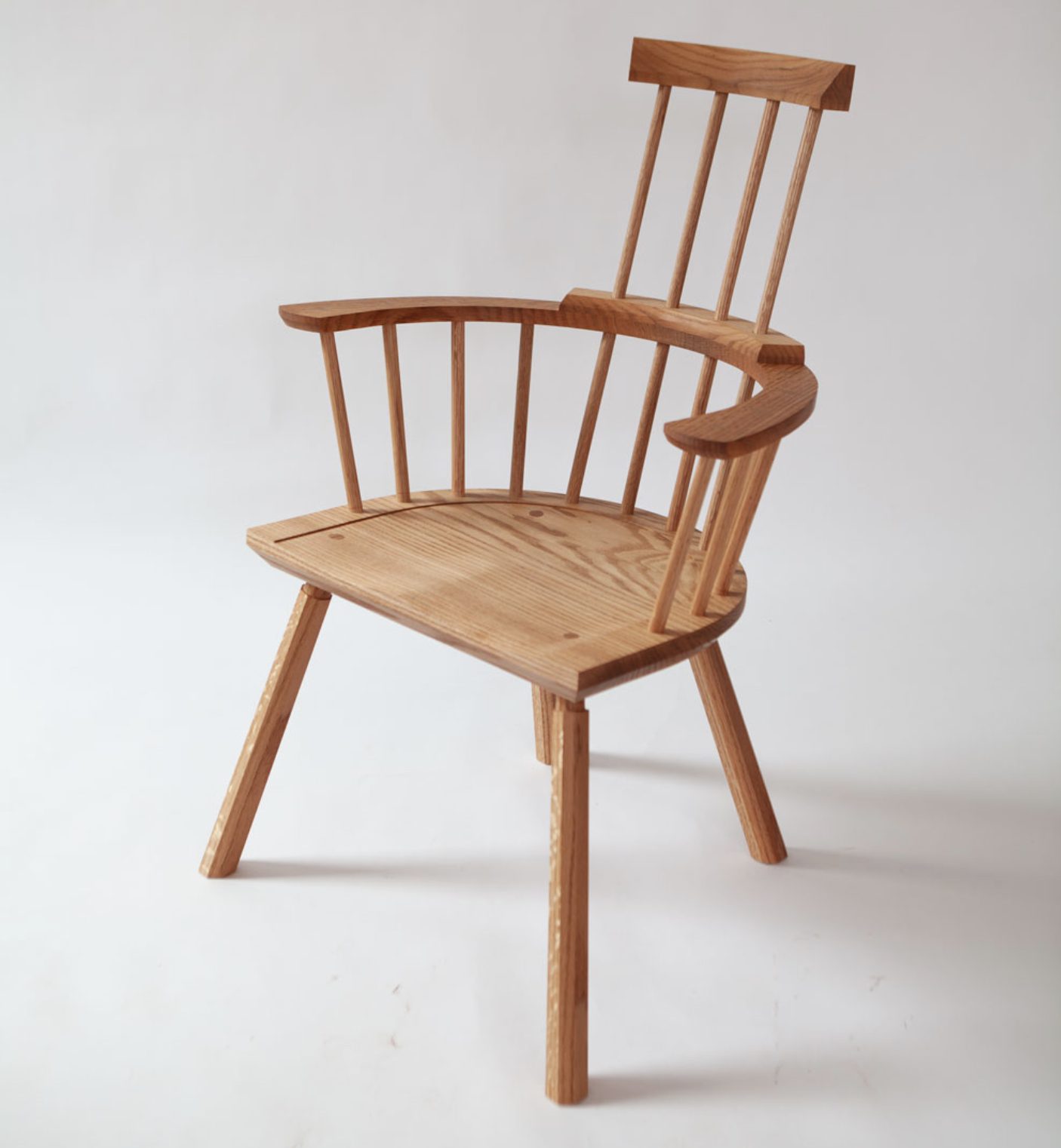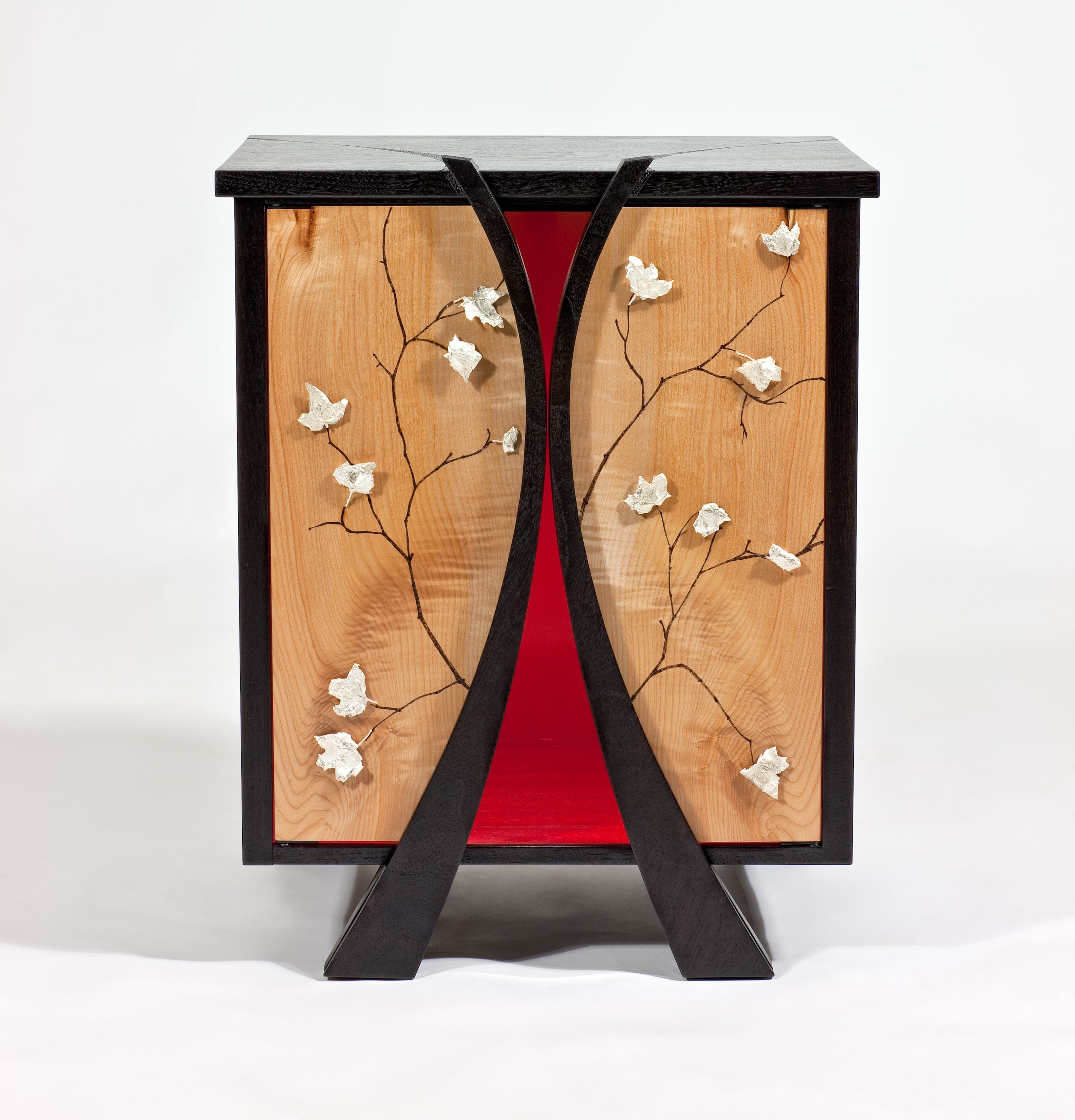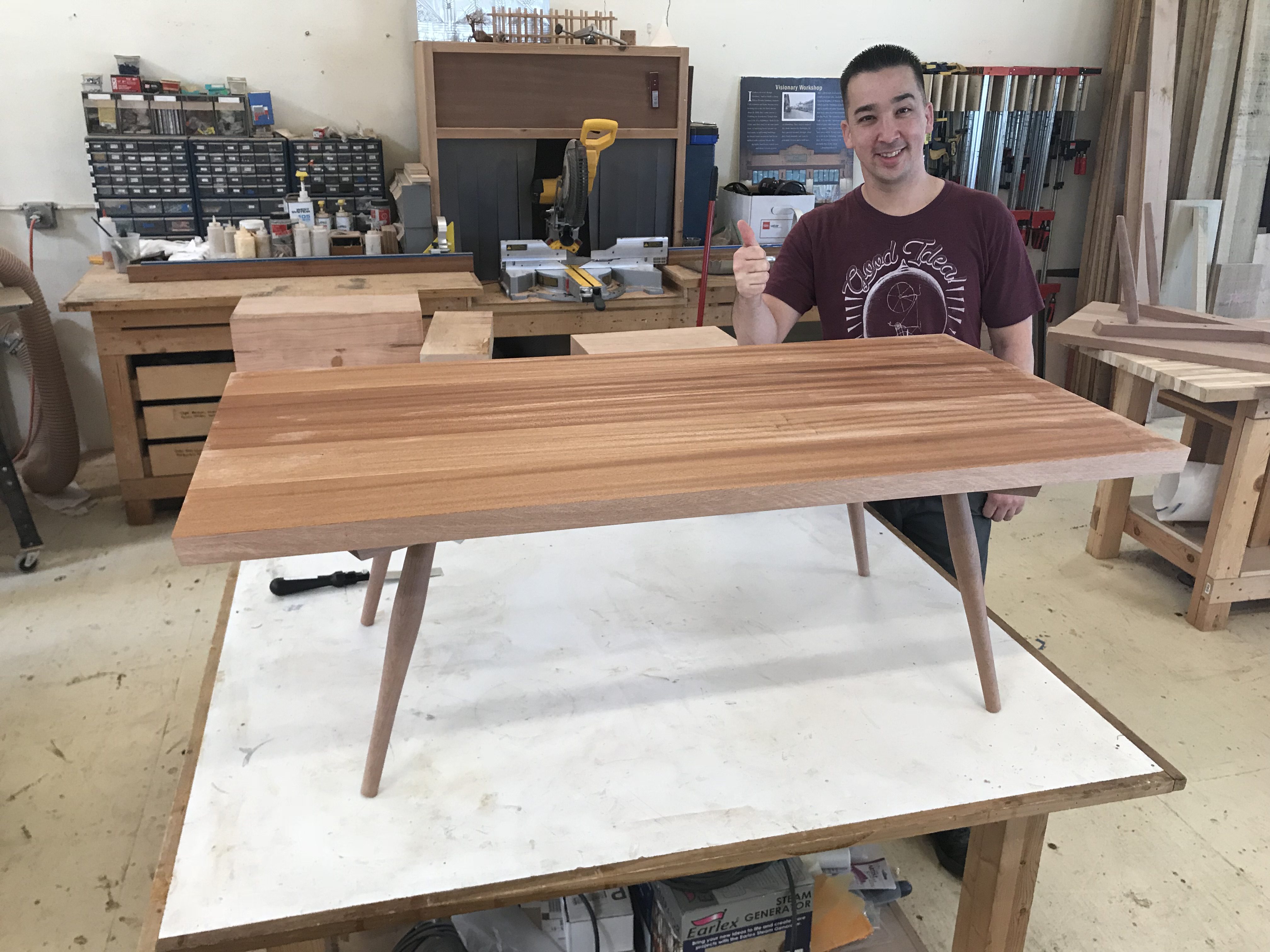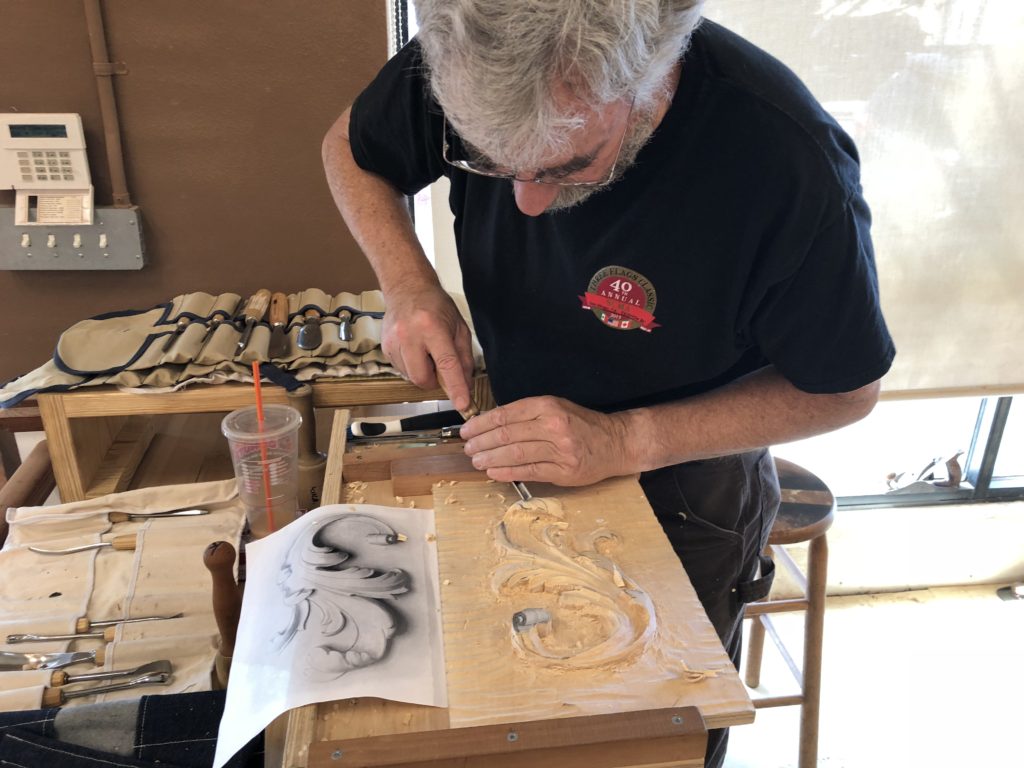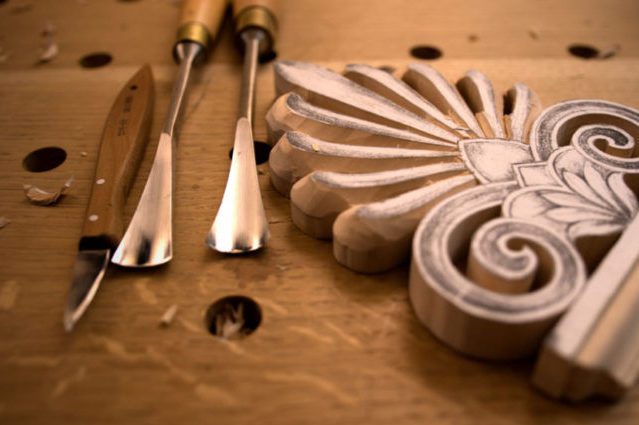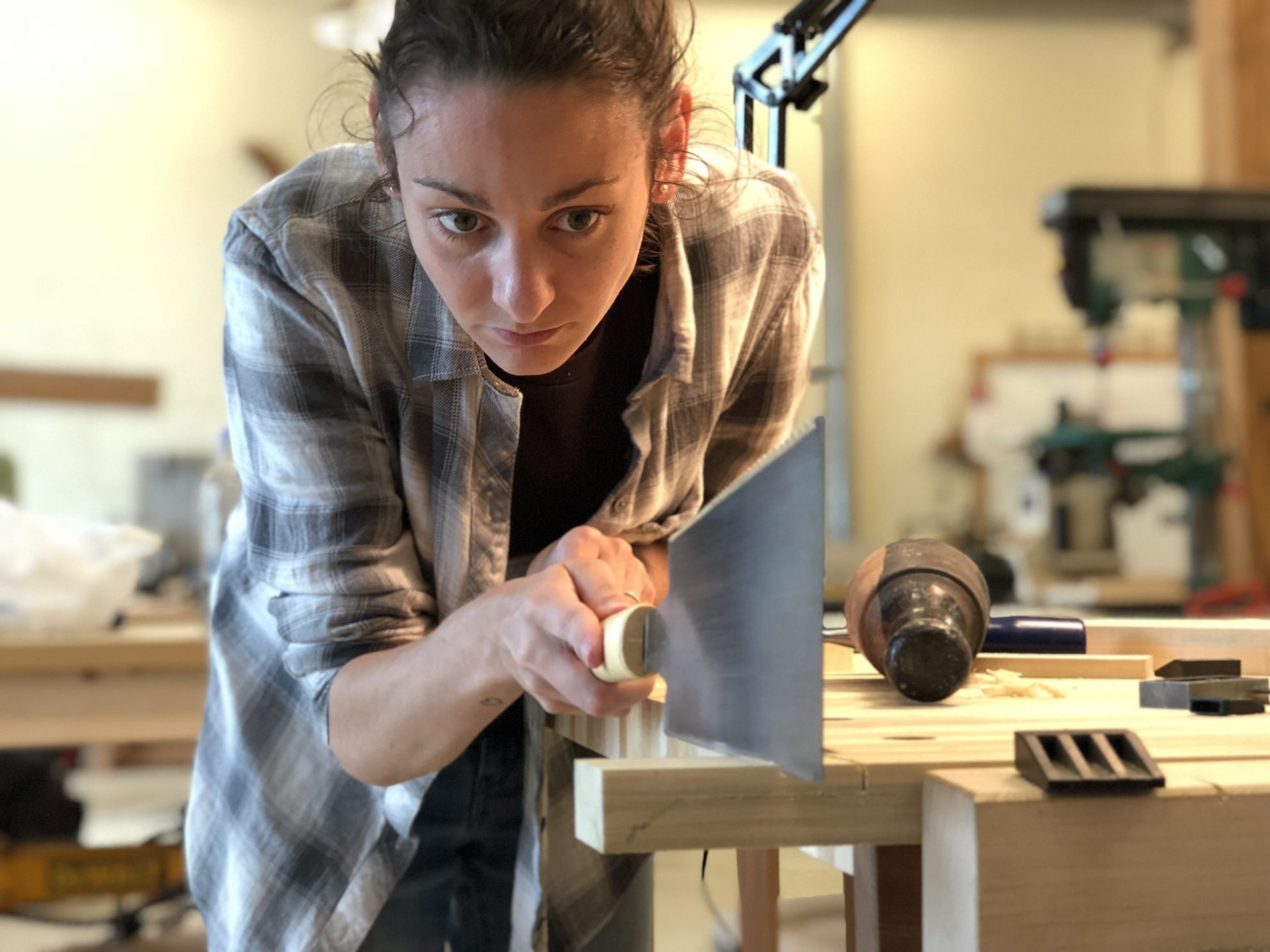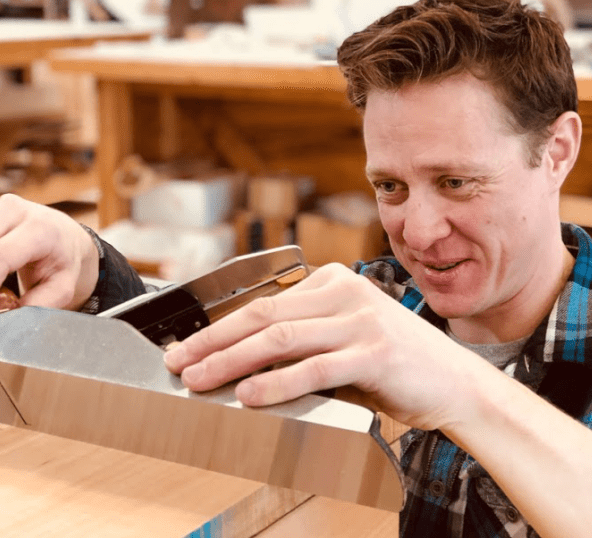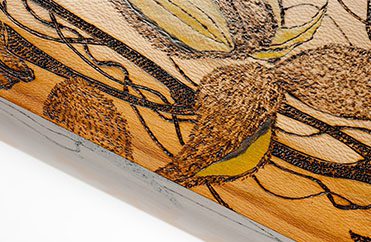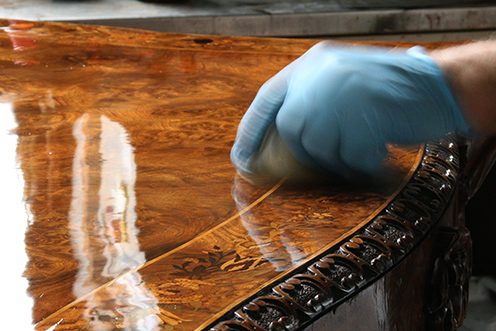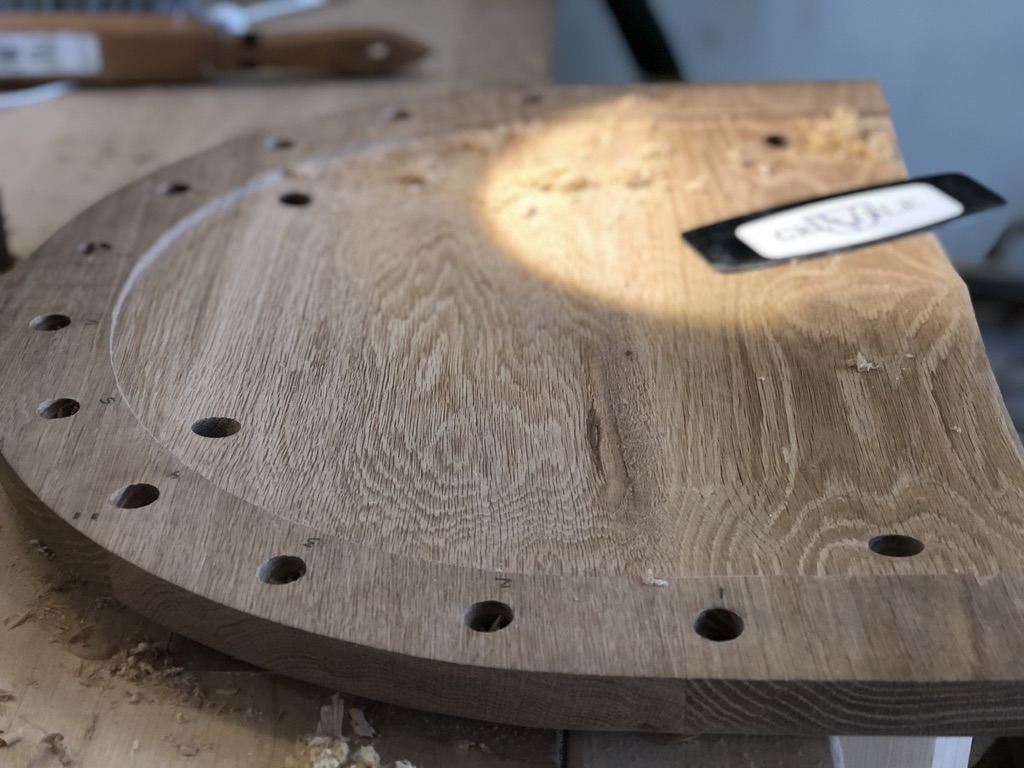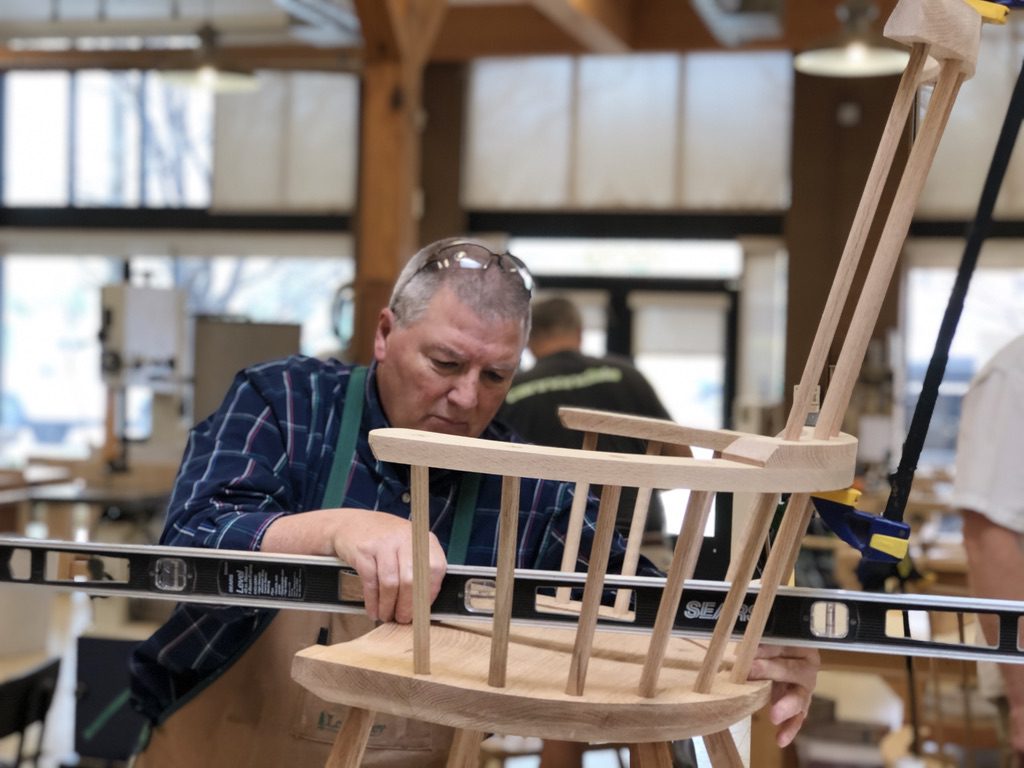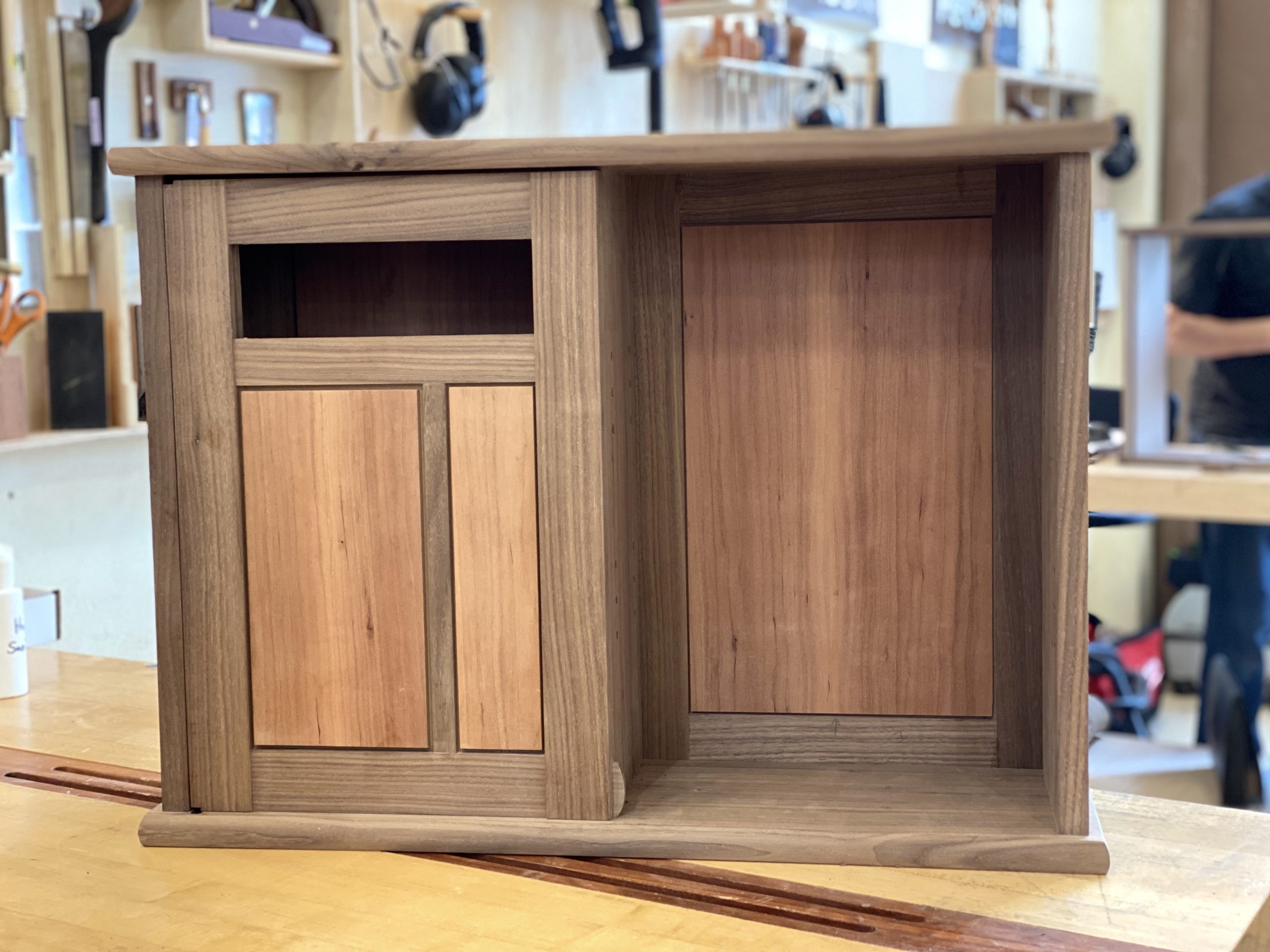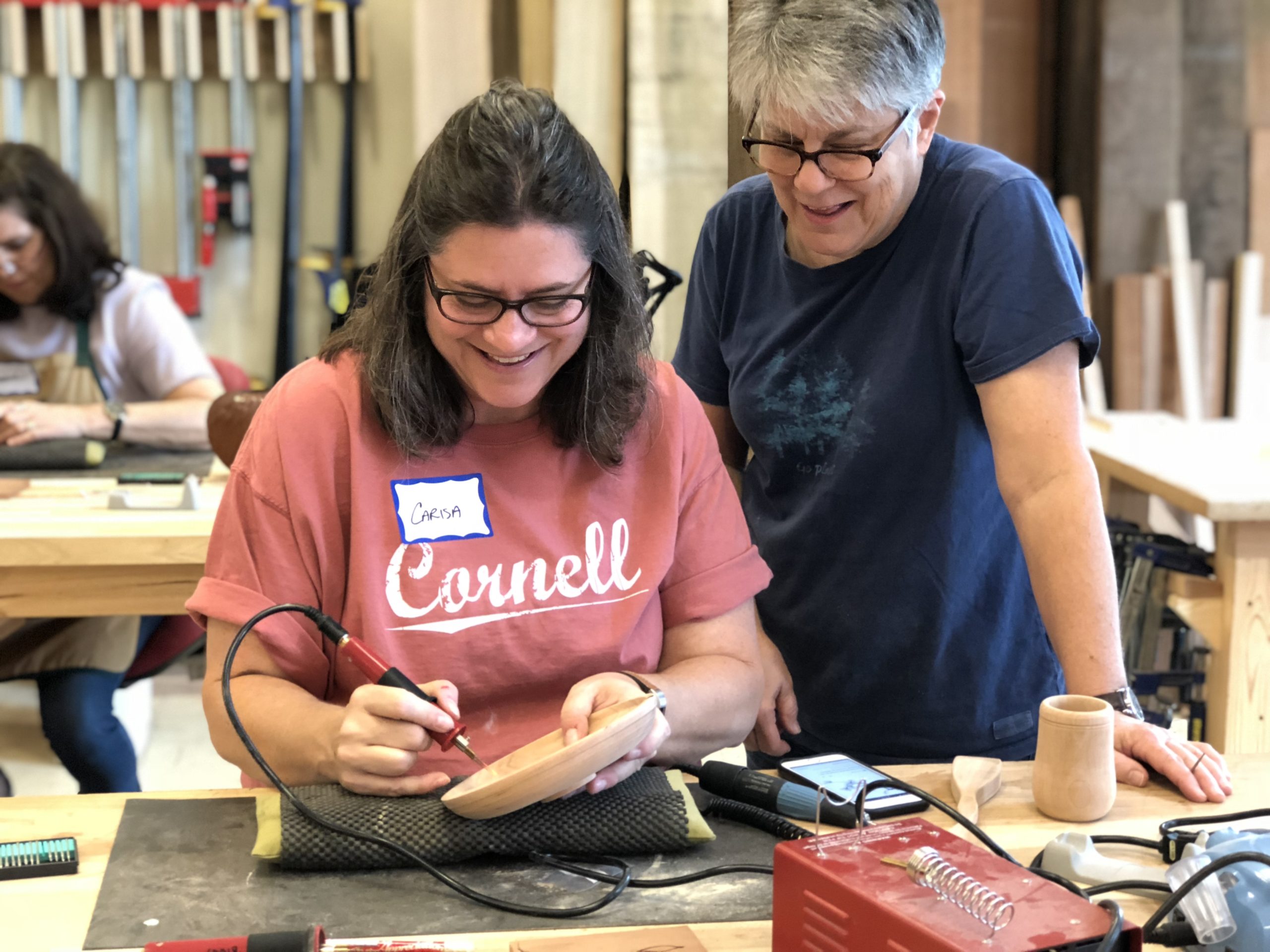Certificate in Furniture Making
About Custom Furniture Making
Custom furniture makers design and build a wide variety of furnishings. This work requires a thorough knowledge of the furniture-making process, including proficiency with design, hand and power tools, functional engineering, materials, finishing, and a problem-solving capacity. A sound sense of economics and business is a big plus.
The Florida School of Woodwork Certificate Program
The certificate program develops all of the skills associated with a furniture-making career and provides an online program that develops the student’s understanding of the woodworking business.
After completion, the School offers an adjunct mentoring program and informally provides connections to employers seeking to hire woodworkers with skills.
In the Certificate program, students learn through a series of classes how to:
- Design and construct multiple different types of furniture
- Estimate costs and select materials
- Prepare working drawings
- Mill lumber to specifications
- Layout and cut woodworking joints by hand and machine
- Operate stationary power equipment safely
- Service and maintain all hand and power tools
- Construct furniture using appropriate techniques, glues and clamping strategies
- Finishing processes – sanding, filling, staining, finishing, polishing
- Select and install furniture hardware
- Use furniture ornamentation techniques such as inlay, carving, bending, and veneering
- Understand the economics of furniture-making
Students are encouraged to challenge themselves to learn new techniques and skills in each project they execute.
On completion, students present a body of work and clarity of knowledge developed over their time at the School. We expect students to graduate with confidence and the necessary skills to design and build fine furniture of their own.
Who is the Certificate For?
This program is for individuals over 18 years old and older who find the physical, mental, and emotional challenge of designing and building furniture rewarding.
It is also appropriate for individuals exploring woodworking as a more fulfilling second career or those who wish to learn more about furniture making as a life-enhancing avocation.
Unlikely other Schools, this program is structured to allow flexibility to the student. This means that while enrolled in the program, the student can still maintain a work-life if necessary, manage the financial commitment to the program in a way that works for them, and, more importantly, it helps the student refine and process the knowledge from each class before moving on to the next.
How Much Does It Cost?
The overall cost for the program – $12,710 – can vary depending on the payment process.
- One-time payment includes a 5% discount $12,074
- Pay by installment plan
- 6 Month plan – $2119 p/mo
- 9 Month plan – $1,412 p/mo
- 12 Month plan – $1,059 p/mo
- Pay by class
Tools, books, lodging and meals are not included in the class costs. However, to help certificate students, the School has an equipment donation program through the associated non-profit. We also provide a significant discount to students at the School’s Airbnb.
We currently do not accept the GI Bill but have worked with the VA on Vocational and Civilian Reentry Programs.
The transfers and cancellations policy is the same for all classes.
Curriculum Requirements
A student must complete the following classes to receive their Certificate of Woodwork. It is generally expected that it will take approximately 18 months for students to complete the program – it can be done faster, 9 – 12 months, but we strongly recommend time for practice and review between classes. Likewise, it can be done a little slower, but this also has consequences of too much time between knowledge building.
Please note that except for the router and finishing class, the weekend versions of classes do not count towards the Certificate.
How Do I Start?
The first step is to contact the School and discuss your interest. We want to ensure we are a good fit for you and that the result of your investment will get you where you want to go. Please call us at 813 223 3490 and ask for Kate Swann, the Director of the School. If it sounds like a good match, we will invite you to the School for a tour and further conversation.
Once this is complete, we will work out a class plan using the planner – see the link below.
Recommended Order of Classes
The classes in the course curriculum below are shown in the general order to be taken. Each new class often builds on the knowledge of the one before it.
There is some general flexibility. For example, once you have taken the Beginning Woodwork class, you can take Box Making, Joinery & Handtools in either order.
Once these are complete, plan on tackling either the intro to chair-making or casework class. The remaining classes should be completed before the last class.
Beginning Woodwork
This class will establish the foundation for all classes going forward. You learn about design, milling, get an intro to joinery and contruction and make your first pieces. You will also learn about safe use of all power tools along with the sequence of woodworking projects.
Handtool & Joinery
Along with learning about and making a wide variety of joints you will improve your layout skills, radically improve your measuring and accuracy and gain a better understanding of joint selection and wood behavior. Sharpening and use of chisels, handplanes, spokeshave is an integral part of this class.
Box Making
Building on your woodworking and power tool knowledge and is a great stepping stone class to larger projects, like cabinets or drawers. You’ll learn about joinery that can be used in a wide variety of situations, resawing lumber, jigs and construction.
Chair Making
Making a chair pushes a maker to consider a wide variety of woodworking challenges – ergonomics, engineering, aesthics, and construction process. There are several chair class to select from all of them will take your skills to the next level.
Case Work – Elective
Building a case piece – buffet, desk, night stand – under the guidance of an master funiture maker will help you to understand how to tackle larger scale, more complex piece of furniture.
Elective
An you advance through the Furniture Maker program, you will find that you have a particular interest in a certain type of work – perhaps it is marquetry, surface embellishment work, or creative box making – this elective should be used to help you focus and develop those skills. There are also electives on the Business of Woodwork, CAD drawer and photographing your work.
Finishing
A piece isnt done till it’s finished and often woodworkers fail at this last task. A good finish is what makes your piece portfolio worthy in many cases and its good to understand how to select a finish based on your requirments and how to apply it.
Carving
There are several styles of carving, but all of them can bring dimension and finess to your work. The School offers classes in traditional, classic carving, in the round carving and occassional power carving.
Two Week Apprenticeship
This final class will bring everthing you have learned during the course together. You’ll work with two renown makers to bring a piece of your design into being.
Turning Your Craft Into a Business (webinar)
This online class is provided as part of general studies for a student if they intend to make build a business out of their work.
On Completion
On completion of the course, the student will receive an evaluation and a certificate.
The School will also provide a reference where appropriate for those seeking work in the professional field.
The School staff will continue to be available for questions and support of the student after their graduation.

